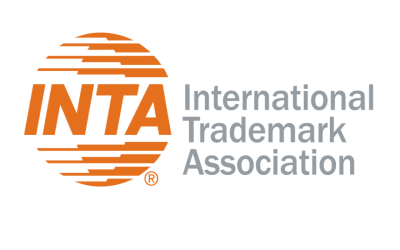In the bustling world of pharmaceuticals, where brand names hold immense value, a fierce legal battle unfolded between Pfizer Products Inc. and Renovision Exports Private Limited (Renovision). The dispute centered on Pfizer’s well-known trademark, VIAGRA.
Plaintiff Pfizer is an international pharmaceutical corporation, holding trademark rights for the allopathic drug VIAGRA which is used to treat erectile dysfunction. The defendant, Renovision, has been marketing a homeopathic medicine under the trademark VIGOURA, which is used for the treatment of sexual disorders.
In February 2005, Pfizer discovered that Renovision was selling products described as “Nervine Tonic for Men” and “Homeopathic Medicine Invented in Germany” under the infringing mark VIGOURA and its variants. Pfizer filed a suit against Renovision, alleging that its VIGOURA mark is deceptively and confusingly similar to Pfizer’s well-known VIAGRA trademark.
According to Pfizer, it adopted the trademark VIAGRA in 1995, and the drug was introduced to the US market in 1998. In a short span of seven years, Pfizer accumulated worldwide revenue of approximately USD 10,000 million. Pfizer successfully registered the VIAGRA trademark in over 147 countries, establishing it as a globally recognized brand. In India, the mark VIAGRA has been registered with effect from 1996 under No. 710135 in Class 05 for “Pharmaceutical Compound for Treating Erectile Dysfunction.”
Pfizer claimed that extensive publicity and media coverage has made the trademark VIAGRA a household name both globally and within India. Pfizer claimed that the widespread global use of the trademark VIAGRA extended the mark’s reputation to India, even prior to its official launch within the country.
Renovision argued that its products, “Vigoura 1000,” “Vigoura 2000,” and “Vigoura 5000,” are distinct homeopathic medicines with different purposes. Renovision contended that, unlike Pfizer’s VIAGRA which provides instant relief, the gradual effects of VIGOURA occur over two to three months and that the composition and nature of these medicines, along with their prescription status, reduce the likelihood of consumer confusion. The defendants contended that its products have a substantial market history. “Vigoura 2000” was first manufactured and marketed by the defendants in 1999.
The court found that the evidence presented by Pfizer established that the term ‘Viagra’ is uniquely coined, devoid of pre-existing meaning, and inherently distinctive. Pfizer’s international registrations further affirmed its distinctiveness. Pfizer’s application for trademark registration of VIAGRA in 1996 indicated intent to use the mark in India. The court held that the trademarks VIGOURA and VIAGRA share both phonetic and visual similarities. The common prefix “Vi” and similar suffix “Ra” create an auditory resemblance, which could confuse consumers. Visually, the letter structure and length of both marks contribute to their likeness. The addition of numerals in VIGOURA does not sufficiently distinguish it from VIAGRA. Despite any intended distinctions between allopathic and homeopathic remedies, consumers may still associate the two products due to the shared context of pharmaceutical products. Due to the similarities between the two marks and their overlapping use in commercial operations, there is a strong likelihood of confusion among the general public. As a result, the court found that the defendant’s use of VIGOURA infringes on the plaintiff’s trademark rights under the Act.
Author’s comments
At the heart of this dispute lies the delicate balance between brand protection, consumer confusion, and the distinctiveness of pharmaceutical trademarks. The court pointed out that the concern in the present dispute is not solely the possibility of consumers confusing the products themselves, i.e., thinking an allopathic drug is homeopathic or vice versa, but more about them confusing their commercial source or if they originate from the same entity or have the same level of efficacy due to similar branding. This initial confusion can occur regardless of the consumer’s overall awareness or knowledge of the differences between allopathic and homeopathic remedies. The court emphasized that even in different but related fields, maintaining distinct trademarks is crucial for clear communication with consumers and maintaining the integrity of brands in the marketplace. Whether it’s a blue pill or a homeopathic tonic, the name matters.

Written by Sunil Jose
Founder and Managing Attorney, SUNS LEGAL

Written by Aathmaja Menon
Legal Intern, SUNS LEGAL
You may also like…
INTA files statement in intervention in EU case on the inherent distinctiveness of color combination trademarks
New York, New York—July 24, 2024—The International Trademark Association (INTA) has filed a Statement in...
Bytedance stumbles in Singapore: IPOS rejects TIKI trademark challenge
The social media giant Bytedance, owner of the ubiquitous TikTok platform, recently suffered a setback in Singapore....
TOUR DE FRANCE fails in the third stage against German fitness studio chain
At the end of June, the 111th edition of the Tour de France kicked off. June also saw the end of a dispute between...
Contact us to write for out Newsletter














